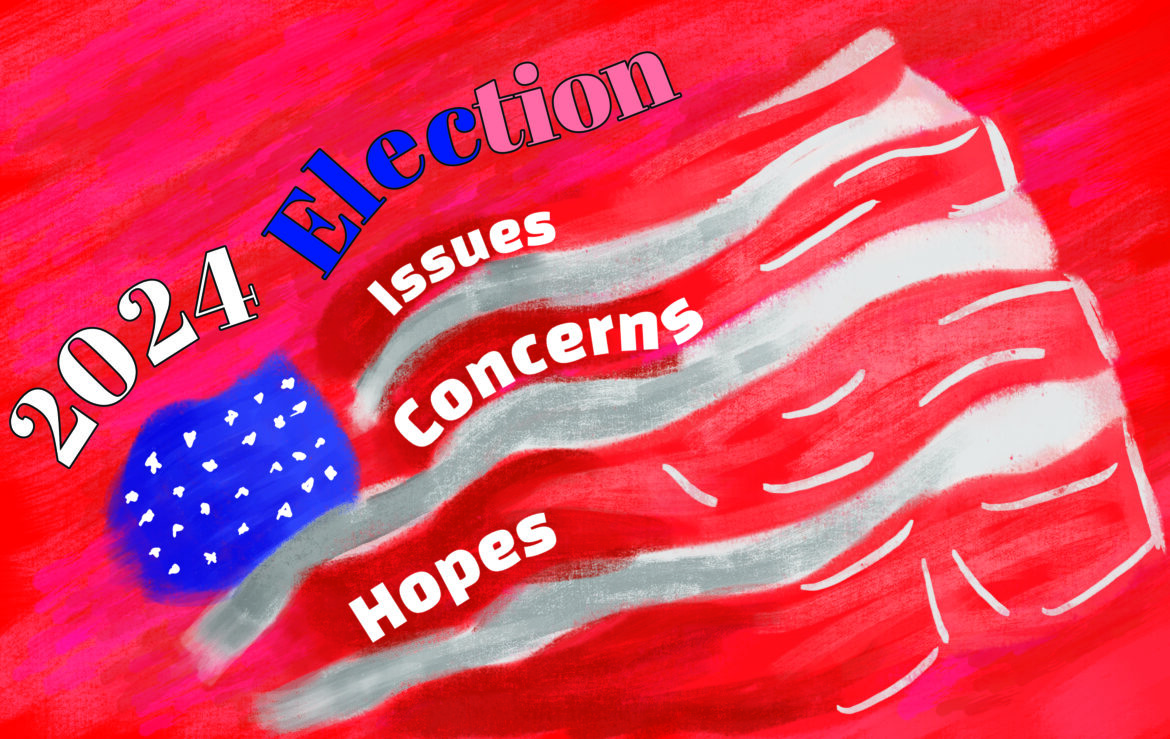The 2020 election came at a crucial time when distinct political, scientific and social issues held the spotlight. Four years later and you can list a new set of hotbed controversies and problems. The question of who will vote for who is not as clear cut as it was last election.
Young people in college have an interest in the political atmosphere by being in classes and organizations centering around those themes. But beyond course content, these things become real-life concerns when we realize how they impact our future. There is an array of issues waiting for us when we graduate, first and foremost being employment opportunities and housing. Those who dorm or do not live at home already face this.
This comes from just thinking about the typical college student’s experience. Then we find statistics that reinforce this.
The Center for Information and Research on Civic Learning and Engagement (CIRCLE), a research group at Tufts University, conducted surveys on the relationship between young people and the 2024 election. It might not come as a surprise that “…young people are sending a clear message that their primary concern is the economy. 53% chose the cost of living/inflation among their three top issues…”. And that’s once we set our foot outside. Anxieties about health care, the role of AI in the workforce, and international affairs affect truly everyone once they are declared legal adults.
A 6-minute interview from NPR hosted the Newshouse Director of CIRCLE, Kei Kawashima-Ginsberg, where she highlights the institution’s recent research. Her observation about Generation Z as a voting generation and their dissatisfaction has shown they “…take the issue in their own hand and try to intervene, try to get involved sometimes by speaking up by their vote.”
This is visible to us when we see young people in protests and movements, including discussing the weight our vote holds. The study shows Gen Z making up one-fifth of the voting population by next November. But in addition to genuine worry, there is another important factor impacting our presence in politics: mental health.
The statistics say Gen Z is more aware of their current political state, and we try to act on a diversity of issues. Montclair State University has an active student body when it comes to engaging with its faculty and administration, from asking about fair classroom protocols to questioning the school’s budgeting. But there is a valid concern about how much energy our everyday lives demand to advocate further for ourselves with national politics.
If you listen to the podcast, you will hear responses from the young adults who submitted to NPR. There is some variation in how young people in college vs people in the workforce react to today’s issues. But disappointment in current results and promises of what might be is the same across the board.
Kawashima-Ginsberg references the trend that Gen Z has voted more in their youth compared to other generations. Still, the interview ends with “…if they continue to feel disrespected and unheard, they could, in fact, show that they really need to have that respect by not voting.” This means we may abstain from voting because it seems pointless, other priorities take precedence or it’s a protest of sorts, a repercussion to the government. The diversity in our generation’s concerns is real, including our reasoning when it comes to voting.
Election participation is not only relevant for college students but for all young people. Our generation is burdened with more than just establishing an “adult routine.” We are rebounding from an entire pandemic, from months of wayward employment spurred by politics that ruined relations and the stability they provided. Uncertainty about what may change from one day to the next did not disappear with quelling the coronavirus. Instead, it got amplified and exercised in new ways we could not imagine.
It all comes down to a critical question only Election Day will answer: have the past few years’ events exhausted us past caring, or do they fuel our search for new ways to speak up and bring more attention?



